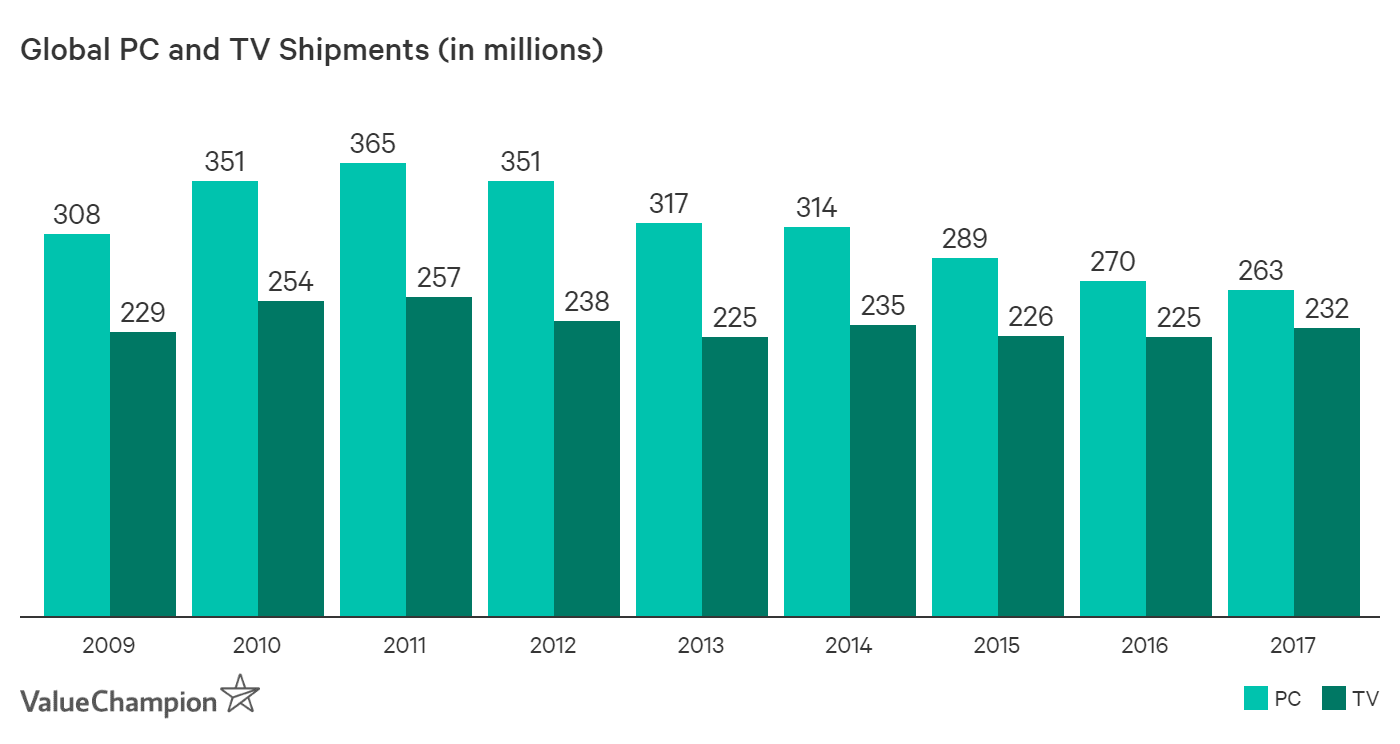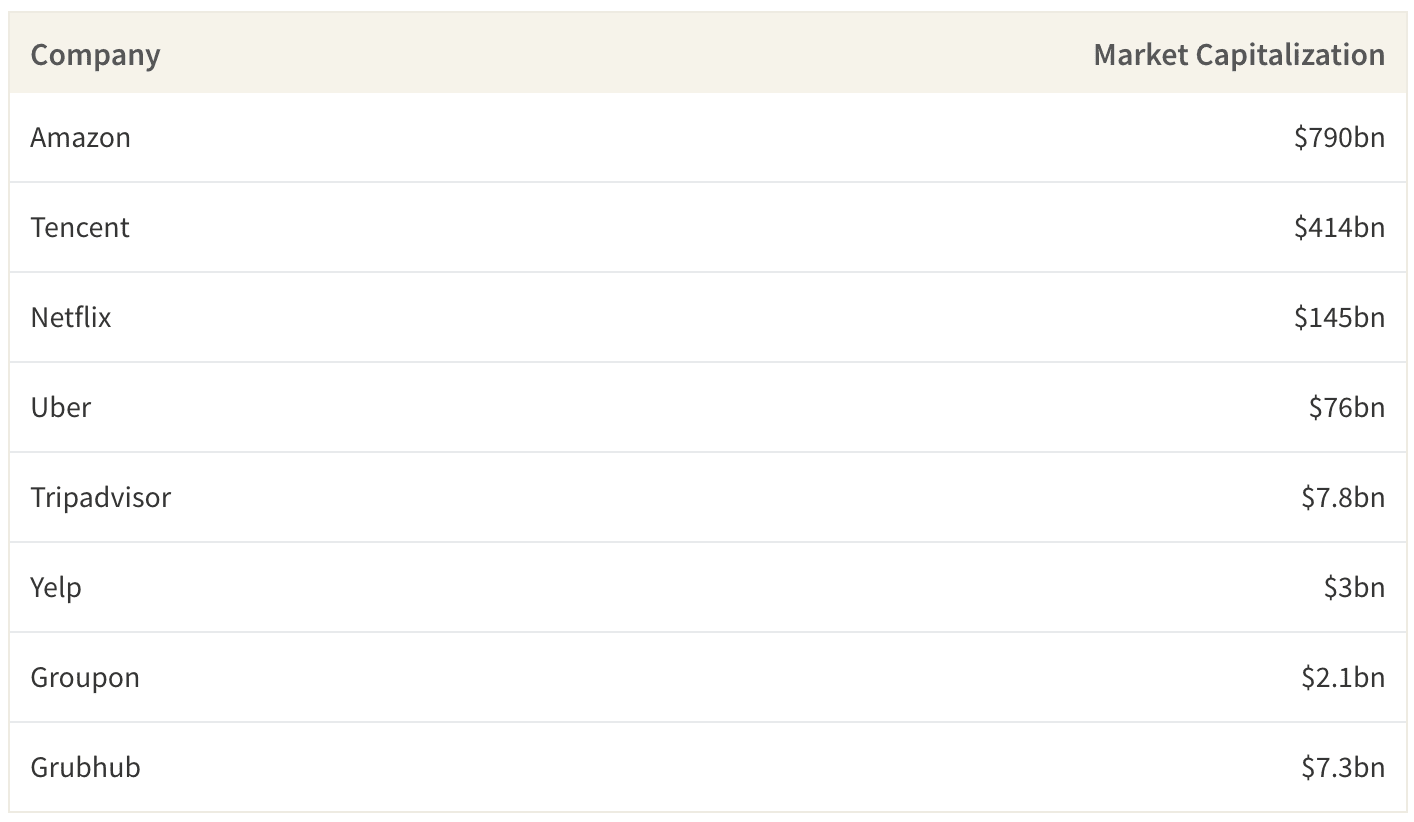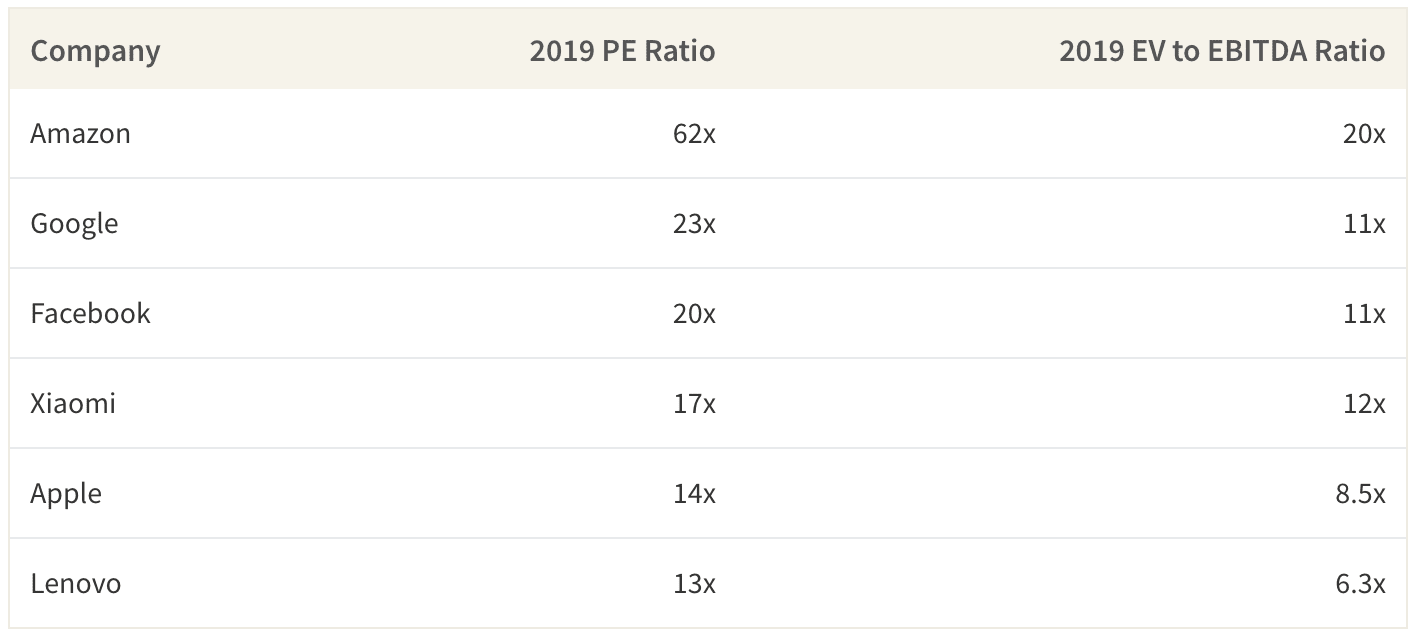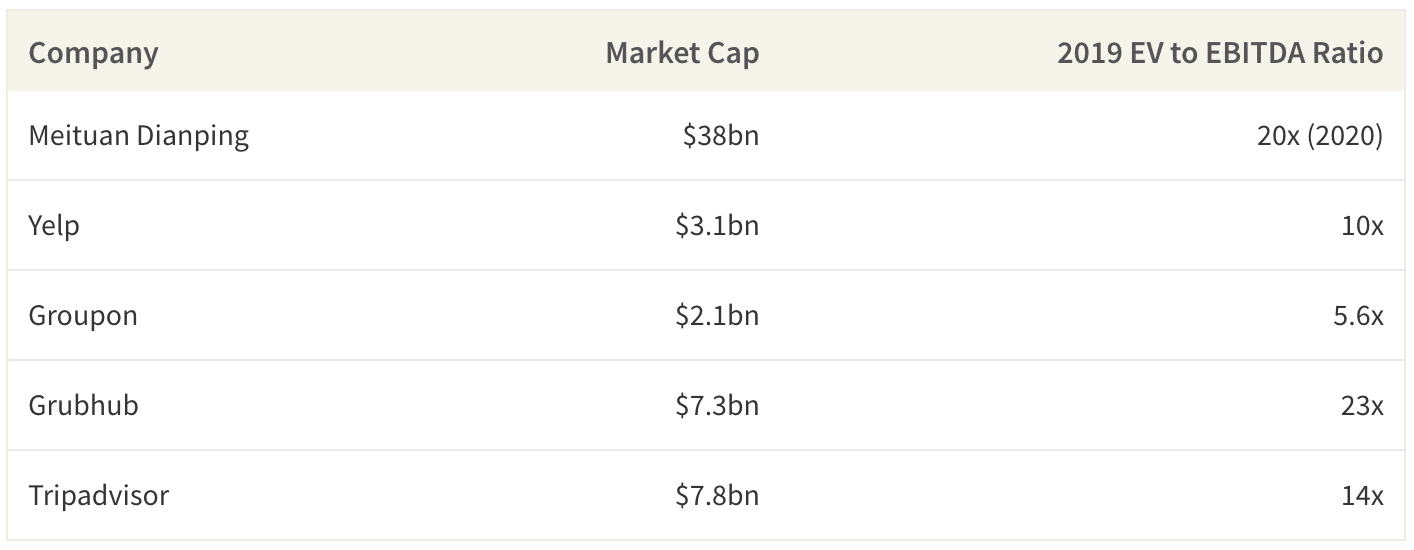Apple, a Service Company? Here Are Companies Apple Should Invest in to Achieve This Goal Better
One of the phrases that Apple's executives repeat regularly is that they are focused on "making the world's best products and enriching people's lives." However, its latest quarterly earnings seems to be signaling that this business model of creating great products might be reaching its ceiling. Of course, China's slowdown surely seems significant enough to have impacted Apple's sales. But, Tim Cook also alluded to the fact that consumers are beginning to upgrade their smartphones more slowly. If this sounds familiar, it's exactly what happened to PCs and TVs: as product innovations become less significant, consumers don't feel compelled to upgrade their devices so often.

Given this backdrop, it's not surprising that Apple is shifting its rhetoric and even company disclosures to emphasize its service business. Companies generally want to show numbers that will help them look good (i.e. Amazon's disclosures around AWS sent its stock flying in 2015); that Apple is starting to hide its unit sales (and therefore average pricing) does not bode well for its "device" business. However, it's also obvious that Apple wants to divert more attention to its "service" business, earning almost $11bn of revenue in a quarter with high gross margin of 63% and an install base of about 1bn iPhones.
However, with just 2 major services (Apple App Store and Apple Music), Apple's service business isn't very robust. In fact, they grew mostly as a consequence of Apple's success in its device business. Instead of relying on services that only exist on its platform, Apple should evolve and expand its service business further by integrating other offerings into its platform. In this regard, Apple can take a page out of a Chinese internet company's playbook.
Key Points
- Apple should deploy its $250bn cash and marketable securities to make strategic investments (or acquisitions) that can help improve its service portfolio, as Tencent has done in China.
- Great candidates include Netflix, Amazon, Uber, Tripadvisor, Yelp, Groupon, Grubhub and even Tencent.
- Apple could offer discounts for Netflix and Amazon Prime memberships, which can help expand the customer base of all 3 companies.
- Creating seamless integration with local services like Uber & Yelp via Apple ID could create a secure and seamless purchase experience for users. Not only that, these companies can help boost Apple's Map offering while also reducing their reliance on Google.
- Overall, a better service portfolio can help boost not only Apple's sales, but also its valuation metrics.
- Finally, Apple has an opportunity to also dramatically improve its investee's business, which could boost its investment profit.
How Tencent Created Its Domestic Internet Service Platform
Tencent is a Chinese internet giant that operates Wechat, a chatting app that became the defacto platform for all integral services offered online in the country. For example, it has a mobile wallet function and also allows people to call cab rides, order deliveries, make online purchases and book restaurants through the app. In order to create this ecosystem, Tencent made numerous strategic investments in leading online services like JD (Amazon of China), Meituan Dianping (Yelp + Groupon + Grubhub of China), Tencent Music (Spotify of China) and Didi Chuxing (Uber of China), offering them both money and access to all of WeChat's users (which basically covers the entire country's online population). We believe Apple could similarly deploy its $250bn of warchest to make strategic investments or acquisitions in services that can help further differentiate Apple against all other smart device companies and fuel further growth via market share gains.
What If Apple Made Strategic Investments in Netflix and Amazon?
In 2016, we argued that Apple should consider acquiring Netflix. Since then, Netflix's stock has almost tripled, making an outright acquisition a bit more difficult. However, we believe Apple could still benefit significantly by making strategic investments in companies like Netflix and Amazon to cooperate in ways that can benefit all 3 companies meaningfully.
For example, what if Apple were to offer 1-2 free months on Netflix and Amazon Prime memberships for all iPhone buyers? By providing cheaper access to globally sought after services like Netflix and Amazon, Apple could stand to increase its market share in many of its biggest markets like the US, Europe, India and Japan. At the sametime, Netflix and Amazon (with more than 100 million subscribers each) could potentially stand to gain millions of more customers who purchase Apple devices.
Furthermore, acquiring customers this way could actually be relatively cheap for Apple. For instance, an annual subscription for either of the 2 services costs about $110 to $120, which means a 1-2 free months would cost about $10 to $25. Before Apple stopped disclosing its advertising expenses, it was spending only about 1.2% of total revenue on marketing, or about $10 per iPhone. Sure, a move like this could decrease Apple's margin slightly, but a 1% decline is almost negligible for a company with 27% operating margin. Not only that, the market share expansion and also potential gains from in its Netflix and Amazon investments could definitely be significant enough to more than offset any negative impact.

That's not all. Having a strategic alliance with Netflix and Amazon gives Apple a significant edge in the next set of battle, i.e. Internet of Things. With smart TVs and eventually self-driving cars where large screens will be prevalent, Netflix will be an integral asset that Apple can leverage to differentiate both its software and hardware offerings. Also, getting an intimate access to Amazon's e-commerce business as well as its lead in voice computing (Siri has long been known to be far behind Alexa on this front) could help Apple elevate its service further in the smart home space.
Mobile = Local & Travel Service
Besides Netflix and Amazon, there are other companies that Apple could acquire or invest in to expand its service offerings. Specifically, the mobile nature of smartphones make them a natural fit for local and travel related services. For example, what if Apple could leverage Uber, Yelp, Grubhub, Groupon and even Tripadvisor to improve Apple Maps (and thereby reduce its reliance on Google) while also helping users make service bookings (rides, hotels, flights, restaurants, food delivery, etc) seamlessly via Siri or even Alexa? What if they could all be integrated through Apple ID for seamless purchase experience, while also increasing security and privacy for the users? The latter is especially interesting given that Facebook, with its controversy around this exact topic, is frequently used as a way to login to many of these services.
Apple's Potential Investment Targets

Furthermore, most of these companies will appreciate getting an elevated access to Apple's immense customer base. Apple's installation base of over 1 billion represents a tremendous growth opportunity, especially for companies like Yelp and Tripadvisor that have been facing a stiff competition from Google and others. If those companies improve because of Apple, Apple will also profit from its initial investment on them.

Alliances in China?
If Apple were to really execute on a plan like this, it should also consider replicating the same strategy in China. Since almost all of the services we discussed above aren't relevant for the Chinese consumer (though many of them are in other countries), Apple needs to secure a different set of local services to improve its service offerings in the country. In this sense, Tencent could be a prime target as a strategic partner for Apple. Tencent has already secured most of the essential services on its platform. If Apple can deepen its tie with Wechat (in exchange for capital and perhaps even assistance in helping Tencent expand overseas), it could potentially be an interesting source of differentiation against other local smartphone manufacturers like Huawei or Xiaomi.
Closing the Gap in Valuation
Besides bad sales results, there is another major reason why Apple wants to be viewed as a service company instead of a product company. Internet "service" companies like Amazon, Facebook and Google are valued much more highly than consumer electronic product companies like Apple or Lenovo, as shown by their PE ratios below. In fact, even Xiaomi, a consumer electronics company that has branded itself as a service & IOT company, is valued at 11x EBITDA, compared to just 8.5x for Apple.

Given this, Apple actually has a significant room for valuation upside if it can successfully build a service platform that can grow its recurring revenue while also bolstering its core hardware business. Not only that, the potential for Apple to combine Yelp, Groupon and Grubhub into one is also interesting. These companies are valued at $12.5bn combined. In contrast, Meituan Dianping (which combines all of these into one) is worth almost $40bn while having exposure only to China, suggesting that Apple could potentially profit handsomely by integrating them into one, seamless platform.


